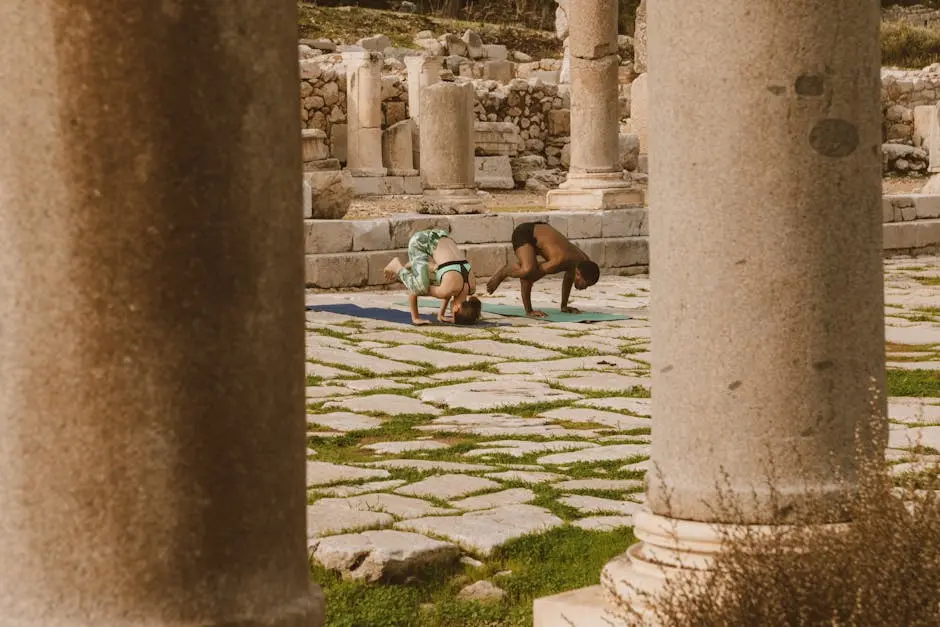Wellbeing practices have transcended generations, echoing wisdom from ancient traditions that emphasize balance, health, and harmony. In this blog, we delve into the origins of these practices, uncovering how they can enrich modern life and lead us towards a more holistic approach to wellbeing.
Understanding Wellbeing: A Holistic Perspective
Wellbeing is not merely the absence of illness but a comprehensive state of physical, mental, and social wellness. This section explores the definition, historical context, and the multifaceted nature of wellbeing.
At its core, wellbeing encompasses various dimensions, including emotional resilience, a supportive community, and a balanced lifestyle. historical texts and cultural practices show that wellbeing has always been about harmony and balance—between mind, body, and spirit.
To provide a clearer understanding, it’s helpful to think of wellbeing as a wheel with many spokes. Each spoke represents a different aspect such as nutrition, physical activity, mental health, and relationships. If one spoke is weak, the entire wheel struggles to roll smoothly.
Thus, the pursuit of wellbeing is a lifelong journey, one that is deeply rooted in self-awareness and intentional choices. Through cultivating these diverse aspects, individuals can create a more fulfilling existence that resonates with both ancient wisdom and modern needs.
Ancient Civilizations and Their Wellbeing Practices
Discover how ancient civilizations such as the Egyptians, Greeks, and Indians developed wellbeing practices that integrated physical health, mental clarity, and social connection. Their holistic approaches laid the groundwork for understanding wellbeing as we know it today.
For instance, the Egyptians practiced a combination of dietary regulations and spiritual rituals aimed at maintaining both physical and mental health. Their reverence for nature and the divine underscored the importance of living in harmony with one’s surroundings.
Similarly, the Greeks emphasized the role of community and open dialogue in fostering wellbeing. Philosophers like Socrates and Plato contributed to the understanding of mental clarity through discourse, advocating for a balanced life rooted in virtue and knowledge.
In contrast, ancient Indian practices such as Ayurveda and yoga offered a comprehensive framework for health that included physical, mental, and spiritual dimensions. Ayurvedic principles focused on balance among the body’s energies, providing a deeply personalized approach to health.
Overall, these ancient practices reveal that wellbeing has always been viewed as a multi-dimensional concept, one that crosses the boundaries between physical health, mental practices, and social connectivity, shaping how we can apply these lessons today.
Yoga and Meditation: Roots in Ancient Traditions
Explore the origins of yoga and meditation, their evolution through centuries, and how they serve as powerful tools for enhancing modern wellbeing. These practices have undergone significant adaptation yet remain deeply entwined with their ancient roots.
Yoga, originally a spiritual practice, integrates physical postures with breath control and mindfulness. The ancient texts emphasize union—not just of body and mind, but also of the individual with the greater universe. Therefore, it fosters a profound sense of connection that many practitioners find essential in today’s hectic world.
Modern science increasingly supports the benefits of meditation for stress reduction, emotional regulation, and overall mental health. Ancient Indians understood this long before scientific validation, using meditation as a means to attain clarity and inner peace.
Aside from personal benefits, yoga and meditation can enhance social wellbeing through community classes, shared experiences, and group meditations. This builds a supportive atmosphere that echoes the communal values of ancient cultures.
The Role of Nature in Wellbeing Practices
Learn about ancient practices that emphasized the importance of nature, such as herbal medicine and nature walks, and how these can be incorporated into our lives today. Nature has always been a source of healing, inspiration, and rejuvenation.
Many ancient cultures relied on herbal remedies to treat a variety of ailments, developing deep knowledge about local flora and their benefits. This bio-regional wisdom still resonates, reminding us of the importance of maintaining a connection with our ecosystems.
Simply spending time in nature has been shown to reduce stress, enhance mood, and improve overall health. Incorporating regular nature walks or gardening into our daily routines can nurture our physical and mental wellbeing while echoing age-old practices.
Moreover, the simple act of connecting with the natural world can help us reset our minds. As we step away from our screens and immerse ourselves in lush landscapes or serene waters, we not only revitalize our spirits but also honor the ancient understanding of nature’s healing power.
Rituals and Community: The Social Aspect of Wellbeing
Discover the significance of community rituals and gatherings in ancient cultures as a foundation for social wellbeing and how we can replicate these practices to foster connection today. The social fabric of communities has always played a crucial role in maintaining health and happiness.
From seasonal festivals to communal meals, ancient societies understood that togetherness strengthens the bonds of community. These rituals celebrated shared values and experiences, providing a sense of belonging that is vital in our fast-paced, often fragmented modern lives.
Today, while our lifestyles may differ, the need for connection remains unchanged. Initiating small rituals—like weekly family dinners or monthly gatherings with friends—can help cultivate the same sense of unity and support, enriching our wellbeing.
Additionally, participating in local community events or volunteer work allows us to build a network of support. It draws on the ancient wisdom that wellness is not solely an individual pursuit; rather, it’s deeply rooted in our connections with others.
Integrating Ancient Wisdom into Modern Life
Find practical ways to integrate ancient wellbeing principles into your daily routine, from mindfulness practices to natural remedies, emphasizing the relevance of these traditions in our fast-paced lives. The wisdom of our ancestors can guide us towards healthier, more balanced living.
Start by incorporating mindfulness into small moments throughout your day. Whether it’s calming your mind during a morning coffee or practicing deep breathing before a meeting, these simple actions can create a significant impact on your mental clarity and stress levels.
Next, consider leveraging nature. Keep herbal teas or plant-based supplements on hand to explore the age-old benefits of plant medicine, easing issues from digestion to relaxation. Even a few hours spent outdoors can be healing—take the occasional work meeting outside or plan your next brainstorming session in the park.
Remember that rituals, both personal and communal, offer opportunities to solidify these practices. Create a gratitude ritual at home, perhaps sharing daily thankfulness with family. Or attend community yoga classes that not only support your physical health but help build connections with others.
In sum, integrating ancient wisdom doesn’t mean abandoning modernity; rather, it allows us to enrich our contemporary existence. By respecting these time-honored practices and weaving them into our lives, we cultivate wellbeing that honors both our past and our present.
Embracing Ancient Wisdom for Modern Wellbeing
As we reflect on the ancient roots of wellbeing practices, it’s clear that these time-honored traditions offer valuable insights for enhancing our contemporary lives. By embracing the wisdom of the past, we can cultivate a more balanced and fulfilling existence in our fast-paced modern world.


